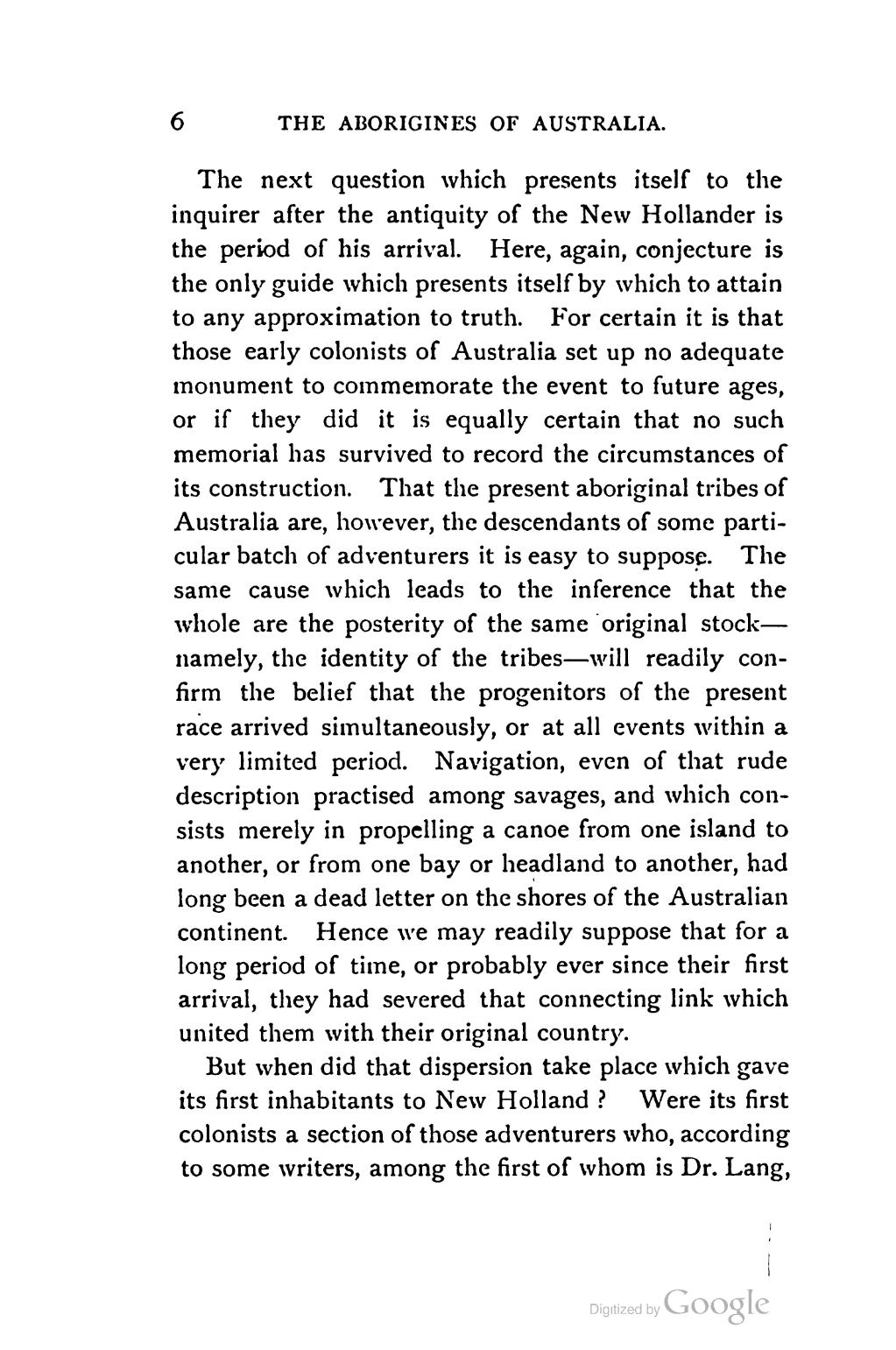The next question which presents itself to the inquirer after the antiquity of the New Hollander is the period of his arrival. Here, again, conjecture is the only guide which presents itself by which to attain to any approximation to truth. For certain it is that those early colonists of Australia set up no adequate monument to commemorate the event to future ages, or if they did it is equally certain that no such memorial has survived to record the circumstances of its construction. That the present aboriginal tribes of Australia are, however, the descendants of some particular batch of adventurers it is easy to suppose. The same cause which leads to the inference that the whole are the posterity of the same original stock—namely, the identity of the tribes—will readily confirm the belief that the progenitors of the present race arrived simultaneously, or at all events within a very limited period. Navigation, even of that rude description practised among savages, and which consists merely in propelling a canoe from one island to another, or from one bay or headland to another, had long been a dead letter on the shores of the Australian continent. Hence we may readily suppose that for a long period of time, or probably ever since their first arrival, they had severed that connecting link which united them with their original country.
But when did that dispersion take place which gave its first inhabitants to New Holland? Were its first colonists a section of those adventurers who, according to some writers, among the first of whom is Dr. Lang,
